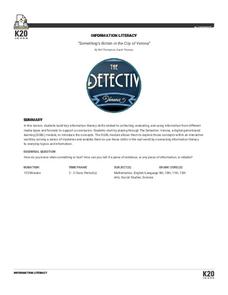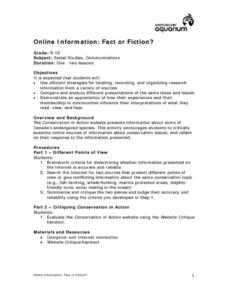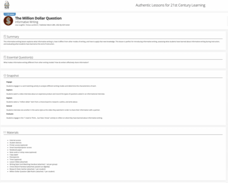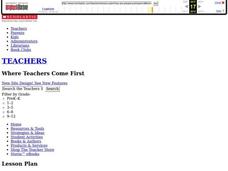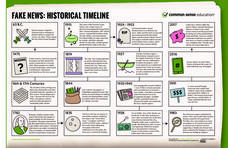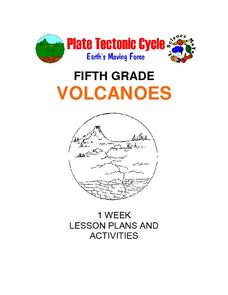K20 LEARN
Something's Rotten In The City Of Verona: Information Literacy
Data is a powerful tool that your class can use for both good and evil! Help your classes become knowledgeable consumers of information through a game-based exploration. Learners examine a method of determining the reliability of a...
Curated OER
Online Information: Fact or Fiction
Discuss ways to determine if the information middle and high schoolers gather online is accurate. Using the Internet, they cite two sources that show conflicting points of view on a subtopic of conservation. They summarize and analyze...
Code.org
Packets and Making a Reliable Internet
That's not what I said! My message did not arrive in the correct order! Introduce the concept of packets and the transmission control protocol used to send and receive information over the Internet. The class participates in an unplugged...
Transforming Education
Trauma-Informed SEL Toolkit
The Trauma-Informed SEL Toolkit is a presentation for educators who seek to create a reliable environment where scholars who have experienced adversities and trauma feel supported, safe, and ready to learn.
Southern Poverty Law Center
Evaluating Reliable Sources
A lesson plan instills the importance of locating reliable sources. Scholars are challenged to locate digital sources, analyze their reliability, search for any bias, and identify frequently found problems that make a source unusable.
Southern Poverty Law Center
Choosing Reliable Sources
It is more important than ever that 21st-century learners develop the skills they need to become savvy consumers of media. Young learners locate and identify reliable sources of information with a helpful media lesson.
University of Washington
Connecting Youth to Quality Health Information
Many teenagers don't have adequate access to health and nutrition information beyond a quick Internet search. Guide them into health advocacy and proficiency with a lesson focused on MedlinePlus as a reliable source for health...
K20 LEARN
The Million Dollar Question: Informative Writing
Introduce high school freshmen to the characteristics of informative writing with a 5-day lesson that distinguishes informative writing from other modes. Scholars learn how to search for and cite reliable resources, then research and...
Curated OER
How are People Portrayed by Different Media?
Your 9th - 12th graders can hone their analysis and critical thinking skills by studying the way a subject is portrayed across media types. They examine how various print, visual, and online sources have portrayed key players in the 9/11...
Curated OER
Locating Information Quickly in a Variety of Resources
Here is a lesson which may be best suited for a library science teacher, or one that can be done by a regular teacher when in the library. In it, learners explore the best ways to use print and electronic resources to find information...
Curated OER
Information Overload: Looking at News
How do events reported in mainstream newspapers, on television news, blog posts, and social network sites differ? Ask your class to investigate the way the same news item is presented in the many information sources available. Groups...
Newseum
Can I Trust the Creators?
It's easy to find information at the click of a mouse, but is it trustworthy? Pupils learn about the E.S.C.A.P.E. acronym for evaluating sources. Next, learners read a news story and evaluate its sources to determine credibility. Last,...
Newseum
E.S.C.A.P.E. Junk News
Fair, balanced, and reputable information? There's an acronym for that! Scholars learn the E.S.C.A.P.E. method for evaluating news sources. Then, pupils work in small groups to read and analyze a news story and discuss the activity to...
EngageNY
Gathering Information about Water Management: Assessing and Reading Internet Sources, Day 2
Accuracy, credibility, timeliness ... it's time to act on source reliability! Pupils continue conducting Internet research, selecting two questions about water management from their researcher's notebooks that they want to explore...
Curated OER
Taming the Wild Wiki
Take a look at the credibility of online sources such as Wikipedia. Discussion points and handouts are included to facilitate a meaningful and informative dialogue. Tips are given on how to determine if a Wikipedia article is reliable...
Nemours KidsHealth
Media Literacy and Health: Grades 6-8
Internet suffers could drown in the volume of information available on line. Here's an activity that can be a lifeline and buoy confidence in middle schoolers' ability to find reliable information and credible sources. After reading...
Common Sense Media
Fake News: Historical Timeline
In 1874, The New York Herald falsely claimed that several animals escaped from the Central Park Zoo, and panic ensued. Using the helpful infographic, pupils discover more instances of fake news throughout history, from as far back as 63...
K20 LEARN
Street Cred: Evaluating Sources
A instructional activity on evaluating sources of information teaches scholars to "think twice" before using a source. Researchers examine a resource's home page, author, and sponsor, as well as the date published and the documentation...
Curated OER
I Heard It 'Round the Internet: Sexual Health Education and Authenticating Online Information
Students evaluate websites regarding sexual health information. In this media awareness lesson, students discuss facts and myths regarding sex as they determine how to find reputable online and print resources.
Overcoming Obstacles
Using Appropriate Resources
A lesson dives deep into reference materials. The class begins with a discussion of which resources are best used for specific purposes and how to identify ways to get the needed information. Learners share information about the internet...
Nemours KidsHealth
Media Literacy and Health: Grades 9-12
An essential skill for 21st-century learners is to know how to find reliable sources of information. Two activities help high schoolers learn how to determine the reliability of health-related news from websites, TV, magazines, or...
Curated OER
Volcanoes: Fifth Grade Lesson Plans and Activities
Fifth graders explore volcanoes and the rocks they produce using the Internet. The lab portion of the lesson prompts young scientists to compare and describe igneous rocks. Next, they critique a pair or more of books on volcanoes in...
Stanford University
Hurricane Katrina
The adage says that journalism is the first draft of history. How should people evaluate these sources of information? Taking into account various sources, including those from various perspectives and different creators, learners...
Curated OER
How to Locate and Evaluate Information, Part I - Online Catalog
Using the online catalog, researchers locate and record on a citation template specific sources for their research paper. A library specialist models searching strategies while the teacher introduces the research paper process. Daily...


